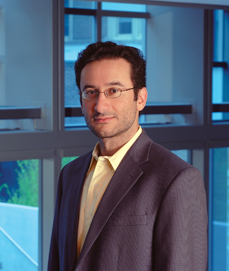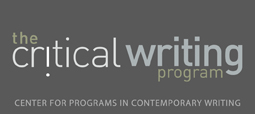Chemical and Biomolecular Engineering
An Overview of the Discipline
The chemical and biomolecular engineering discipline focuses on understanding and controlling chemical and biochemical reactions as well as the physical and chemical behavior of fluids and solids. Chemical engineers develop detailed knowledge of these disciplines along with engineering principles for application to products ranging from fuel cells to pharmaceuticals.
Writing in the Discipline
Goals
The field of chemical engineering is primarily geared towards problem definition and finding solutions. Through research into alternative energy, advanced materials, cellular engineering and computational modeling, chemical engineers aim to find ways to improve various aspects of life, which include, but are not limited to, the economy, the environment and healthcare.
Reasoning
Writing in this discipline is both explanatory and justificatory. Explanatory reasoning is required when researchers explain the findings of their research and detail hypotheses and the methods used for their experiments. Since members of the scientific community may have different views on the same research topic, writing is justificatory when researchers must convince their colleagues that their interpretation of the results of the experiments conducted is valuable.
Evidence
In this discipline, observations or measurements from a well-defined experiment, or results from a well-defined model or computer simulation constitute legitimate evidence. Calculations based on physical processes also fall into this category. In some cases, statistical analysis is also considered solid evidence.
Authorship
In the academic community of chemical and biomolecular engineers, multiple research groups work independently of each other. Within these groups, there is collaboration between individuals to solve a clearly-defined problem, or to define a problem so that all can work together to solve it. Writing is also a collaborative process within these groups. Ph.D students work closely with their professors to write research proposals and papers.
Claims
Any claims made must be based on scientific facts and evidence collected through experiments or calculations.
Writing Tips
For undergraduate students, demonstrating mastery of others’ ideas is critical in writing for this field, as is sound reasoning and the provision of valid evidence. Organization is very important; writing must be structured in a manner that is easy for the reader to follow. Formatting and style are important, but not crucial. Students must follow the assignment instructions and also pay attention to grammar and mechanics to ensure that their writing is easy to read.Common Errors
A common issue that chemical engineering professors have with some students is that their writing lacks concision, for example unnecessarily long explanations that distract from the main points. Another problem students have is failure to keep all aspects of a particular research topic in perspective. Without a sense of audience, the student may omit crucial details or include irrelevant points. Last, students do not always plan the structure of their paper before beginning the assignment.
Style Preferences
Concision and plain prose are key in scientific writing. The use of figurative language is strongly discouraged.
Genre
Student Writing
Typical assignments for undergraduates include traditional lab reports, reports on design and operation lab reports. Students are also required to complete a senior design project, which includes a detailed report by groups of students on a semester-long study. Graduate students usually write research proposals and annual reports.
Professional Writing
Professional writing in the field includes, but is not limited to, grant proposals, posters, presentations and journal articles. The following link has a list of Penn professors, sorted by subdiscipline, with links to examples of their writing.
Chemical and Biomolecular Engineering Research Areas© 2013 The University of Pennsylvania
Meet the Professors
 Dr. Raymond J. Gorte
Dr. Raymond J. Gorte
"The directness of scientific writing is best learned from fellow scientists."
More...
Dr. Talid R. Sinno
"Students must pay special attention to planning the organization of their papers. Problems with structure and planning can be hard to fix."
More...